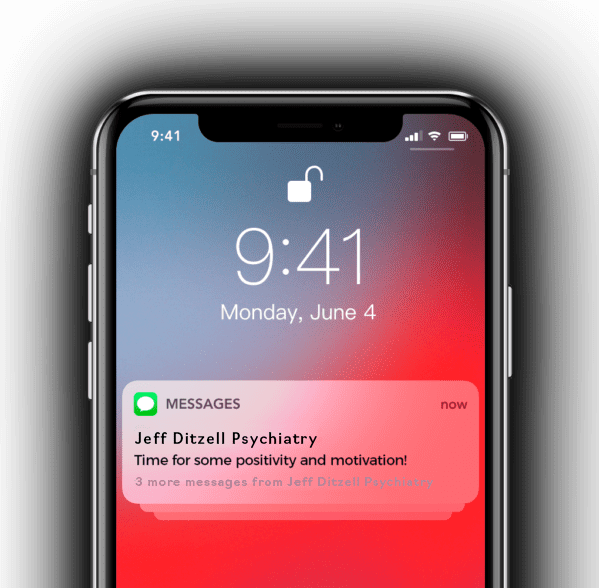Home / Mental Health Journal / The Pet Effect – How pets are good for your mental health

Someone that’s always excited to see you. A friend that’s always there for you with a heartfelt cuddle. A good listening that always thinks you hung the moon no matter what. Wouldn’t having someone like that around make your whole life better? It’s easier than you think to find this perfect friend. You can find one at your local New York City animal shelter.
The Pet Effect is the researched and proven positive effect that pets have on their owners’ health. Constant companionship, affection and love is good for the human condition, especially here in stressed-out New York City. Sharing your life with a pet is proven to offer a wealth of benefits for both mental and physical health, such as:
- Decreased anxiety
- Decreased symptoms of depression
- Lower blood pressure
- Lower cholesterol
- Lower triglycerides
- Decreased feelings of loneliness
- More physical activity
- Greater opportunities for socialization
How do pets improve the mental health of their owners?
Companionship, affection, physical touch, love – these are all basic human needs. Pets can provide them all. Even hardened criminals in maximum security prisons have shown vast behavior improvements after interacting regularly with therapy animals such as dogs and horses, with many of the prisoners saying their interactions with the animal were their first experience with mutual affection.
Humans are social creatures. We need positive interaction with others to thrive. Pets, with their unconditional love and affection, provide that connection when human connection is difficult or impossible.
Pets and blood pressure
In a study of 240 couples, pairs with pets had lower resting heart rates and lower blood pressure than those who did not own pets. In another study, children with high blood pressure saw their blood pressure decrease while petting their dogs.
Pets and the pandemic
If there is one thing that is negatively affecting the mental health of the entire globe, it’s the COVID pandemic. All over the planet, people are battling loneliness, unemployment, lockdowns, anxiety, and, of course, the deadly threat of COVID-19. A study of 6,000 people in Britain found that 90% of pet owners said their pets helped them cope emotionally with the stress of lockdowns, and 96% of pet owners said their pets helped them stay fit and active during this time.
Pets and mood
Aside from cleaning up the occasional indoor accident or chewed furniture leg, spending time with a pet instantly improves mood. From watching fish swim in an aquarium to stroking a purring cat to getting slobbery kisses from a dog, it only takes seconds to feel calmer when having a positive interaction with a pet. Studies show that spending time with a pet can raise levels of dopamine and serotonin in the brain, both mood-boosting chemicals.
Pets and physical activity
Getting regular physical activity is linked to all sorts of positive benefits, both mental and physical. Though fish and cats don’t rate well in this department, having a dog means taking daily walks, playing fetch, and going on outings such as hikes and city strolls to entertain your four-legged friend. With a dog, physical activity is no longer optional, leading to improved physical fitness that requires no willpower.
Pets and loneliness
One of the biggest mental health benefits to having a pet is that it wards off loneliness. Loneliness in the modern world has been called an epidemic, and with COVID lockdowns, that problem has only been exacerbated. Loneliness is linked to a variety of health problems, such as high blood pressure, obesity, addiction and depression. Having a pet can mitigate some of the destruction of loneliness. While having a pet isn’t a substitute for human interaction, pets can provide non-judgmental, unconditional love and companionship that buffers the lack of human interaction.
Which pets are best for improving mental health?
In this department, dogs rule. Their bottomless well of affection and positivity makes dogs the clear winner in the race to help humans with their mental health. Plus, having a dog demands an uptick in physical activity with daily walks, trips to use the restroom, and other activities like hiking, playing ball, and fetch.
But you don’t have to get a dog to feel the positive mental health benefits of having a pet. Cats are a close second, lacking only in the physical activity that they require. Other animals such as hamsters, rabbits, snakes, birds and fish also convey positive mental health benefits to their owners.
How to find the right pet for your NYC home
Dogs rank as conveying the most positive mental health benefits to their owners, but only if their owners are truly ready, willing and able to take on the responsibility of owning a dog. Dogs are high-maintenance pets. They need constant attention, walks, can be destructive (especially as puppies), and bark. If you don’t have a lot of time and attention to give to a dog, or live in a small space that’s not suitable for an active canine, getting a dog may cause you additional stress.
If a high-maintenance pet isn’t for you, a cat is a great replacement. Providing all the love and affection of a dog, cats are famous for their independence and can stay for long periods alone without even noticing you’re gone. Cats and kittens can be destructive to furniture and curtains, so keep that in mind. They don’t have to go out, but you will need to clean the litter box every day at least to keep your home or apartment from smelling like a kennel.
Pets such as reptiles, birds, other small furry creatures all require special care and feeding. Do some research to find a pet whose needs, care and conditions match well with your lifestyle.
Some things to consider when choosing a pet:
Do you have enough space for a large dog, or would a smaller pet work better?
If you live with small children or someone of advanced age, consider that a large dog could inadvertently knock them over and hurt them. A cat or small mammal could be a better choice.
Are you able and willing to take walks several times of the day and at night to let your dog relieve himself?
Are you away from home for long stretches of time? Dogs should not be forced to hold their urine for 8-10 hours a day. If you’re away from home many hours a day, consider taking your dog to a doggie day care during the day or getting a less high-maintenance pet, such as a cat or small mammal.

Dr. Jeff Ditzell, D.O. is the lead psychiatrist at Dr. Ditzell Psychiatry with over 25 years experience treating people for Anxiety, Depression, OCD, PTSD, Adult ADHD, Bipolar Disorder, using ketamine treatments, psychotherapy, and so much more.






